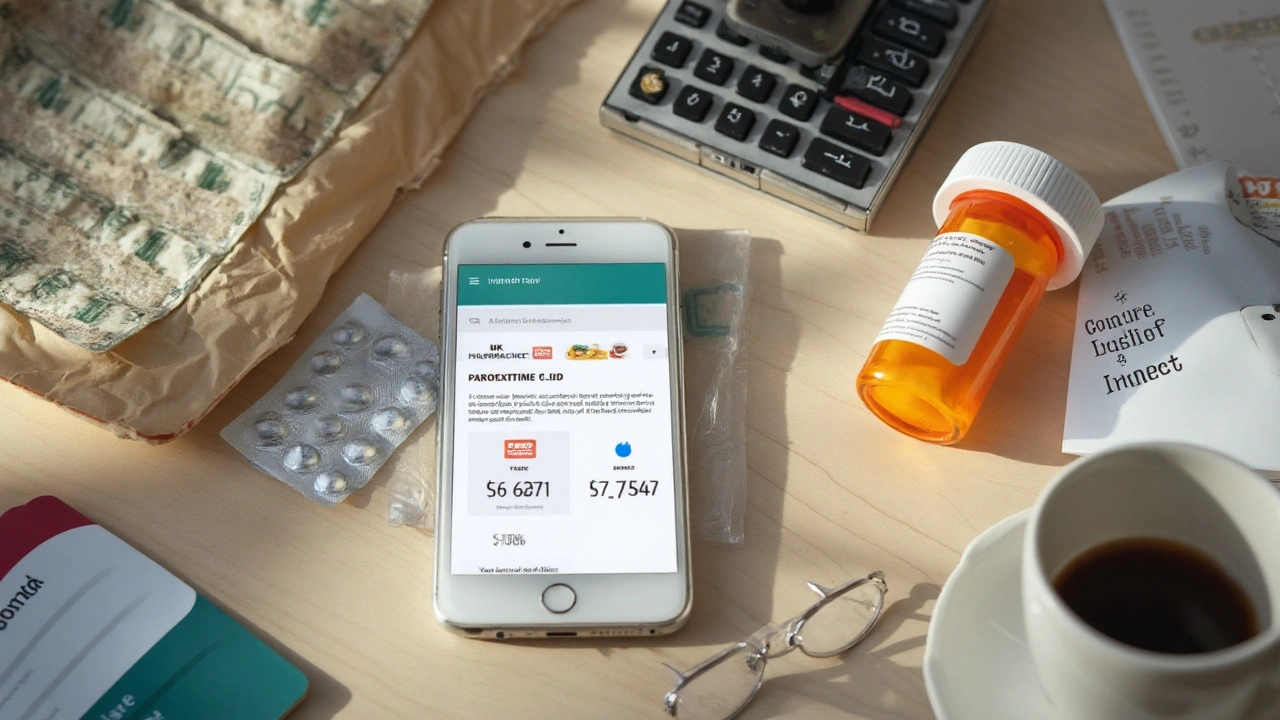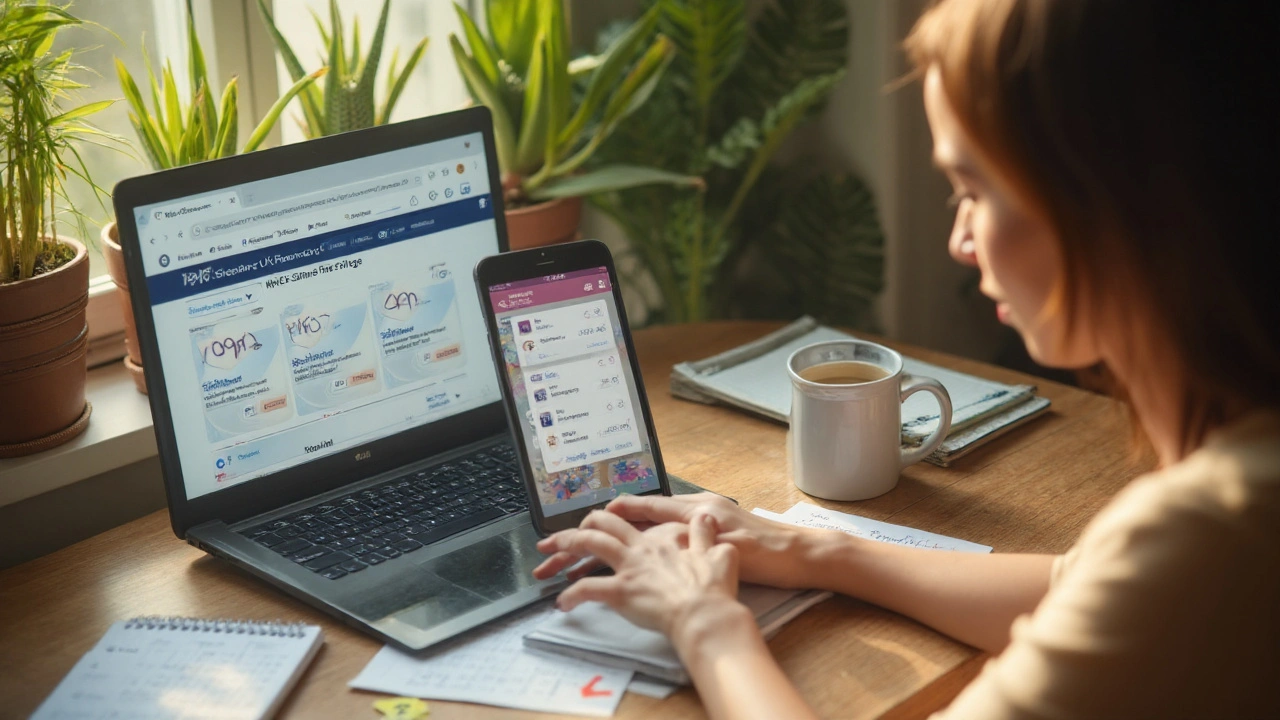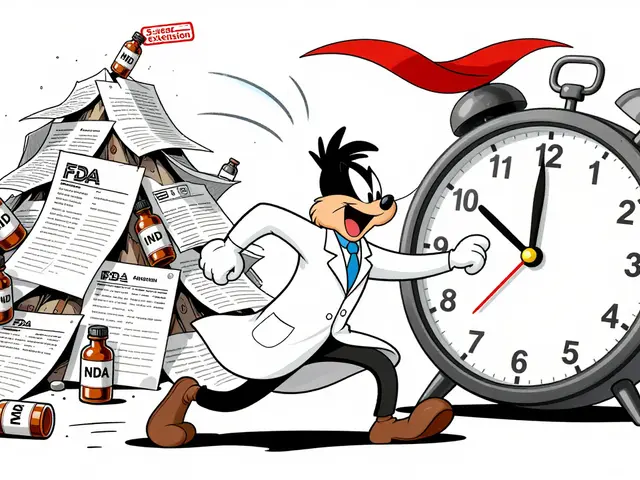If you’re hunting for a cheap way to get paroxetine (the generic of Paxil) online, you’re probably trying to tick three boxes: safe, legal, and genuinely low cost. Here’s the reality in the UK in 2025: paroxetine is prescription-only, the legit sites will check that prescription, and the price you pay depends more on service fees than the tablet cost. You can still save money-but you need to avoid sketchy sites and know how pricing actually works.
What you want to get done today likely looks like this:
- Confirm if you can buy generic Paxil online in the UK, and what makes it legal.
- See a realistic price range for paroxetine in 2025 (not clickbait numbers), including all fees.
- Pick a safe route-NHS repeat, UK online pharmacy, or private online clinic-without blowing your budget.
- Spot red flags that scream “counterfeit” or “illegal import”.
- Understand core risks (side effects, interactions, withdrawal) and how to lower them.
- Know your next step right now depending on whether you have a prescription or not.
How to buy paroxetine online in the UK without getting burned
Short answer: yes, you can buy paroxetine online in the UK-but only through a registered pharmacy, and you’ll need a valid prescription. Paroxetine is an SSRI used for depression, anxiety disorders, OCD, PTSD, and panic disorder. In the UK, the brand name you’ll sometimes see is Seroxat; “Paxil” is more of a US brand name. The active ingredient is paroxetine-so when you look for cheap options, look for the generic “paroxetine hydrochloride” tablets.
Here’s the safe, legal pathway:
- If you already have an NHS prescription: use your local pharmacy, the NHS App to nominate an online pharmacy for repeat dispensing, or a GPhC-registered online pharmacy that accepts NHS prescriptions.
- If you don’t have a prescription: use a UK online clinic that employs UK prescribers. You’ll complete a medical questionnaire; a clinician reviews it; if appropriate, they issue a private prescription which the same pharmacy then dispenses.
What makes a pharmacy legit? Two things you can check in 30 seconds:
- GPhC registration: The General Pharmaceutical Council registers pharmacies and displays a public register. The site should show its pharmacy name and GPhC number, and it should match the register.
- MHRA compliance: The Medicines and Healthcare products Regulatory Agency oversees medicines safety and legal supply. Reputable UK online pharmacies are transparent about sourcing UK-licensed medicines.
Quick legitimacy checklist before you enter card details:
- They ask for a prescription (or offer a UK prescriber consultation). No prescription required = red flag.
- They show a physical UK pharmacy address and GPhC number you can verify.
- They stock UK-licensed paroxetine with batch and expiry-no foreign-language packs for a UK supply.
- They don’t advertise “miracle” delivery from overseas warehouses or promise to “ship regardless of Rx”.
- They disclose pharmacist support and how to contact them for clinical questions.
One more practical tip: the cheapest total cost usually comes when you align the route with your situation. If you’re stable on paroxetine long term, set up NHS repeat dispensing (or electronic repeat via the NHS App) to minimise hassle and cost. If you’re starting treatment or switching, a UK online clinic can be convenient, but factor in the consultation fee.
Evidence note: NICE guidance (UK) still places SSRIs as a mainstay for depression and anxiety, but paroxetine has a higher risk of discontinuation symptoms than some SSRIs, so prescribers often favour sertraline or fluoxetine for first-line use. That’s not a ban on paroxetine-it just means clinicians may be more selective with it. Source: NICE depression/anxiety guidance and MHRA safety communications.

Prices, prescriptions, and what “cheap” really means in 2025
Here’s the bit most people don’t see: the tablet itself is usually cheap. It’s the service layers-prescriber review, dispensing fee, and delivery-that swing the final price.
Typical UK ranges I see in 2025 (for 28-30 tablets; exact pricing varies by pharmacy):
- Paroxetine 10 mg: medicine cost often £2-£5; private total after fees £12-£30.
- Paroxetine 20 mg: medicine cost often £3-£6; private total after fees £12-£30.
- Paroxetine 30 mg: medicine cost often £4-£7; private total after fees £14-£32.
- Paroxetine 40 mg: medicine cost often £5-£9; private total after fees £16-£35.
Delivery ranges £0-£5, often free above a spend threshold. Private prescriber consultation (if needed) is commonly bundled into the price; when itemised, it’s usually £10-£25.
How does this compare to NHS costs? In England, the NHS prescription charge is £9.90 per item (2025), unless you’re exempt. In Scotland, Wales, and Northern Ireland, prescriptions are free. If you pay for several items monthly, the NHS Prescription Prepayment Certificate can slash costs. This is why the “cheapest” route for long-term users is often NHS repeat dispensing.
So, if a website shouts “paroxetine for £1.99!” and buries a £18 consultation and £4.99 delivery, it’s not cheap in the way you care about. Always compare total basket price to your NHS cost (or exemption).
| Route | Prescription required | Typical total cost for 28-30 tablets (2025) | Delivery time | Best for | Watch-outs |
|---|---|---|---|---|---|
| NHS repeat via local/online pharmacy | Yes (NHS) | £0 if exempt; otherwise £9.90 per item in England | 1-5 days (post) or same-day collection | Long-term, stable prescriptions; lowest recurring cost | England charge applies unless exempt; ensure repeats are up to date |
| UK online pharmacy with private Rx (online clinic) | Yes (private, included after online assessment) | Typically £12-£35 all-in, depending on dose and delivery | 24-72 hours | Convenience if you can’t see your GP soon | Fees vary; total can exceed NHS cost |
| Unregistered overseas website | No | Advertised low; real cost hidden (risk of counterfeit) | Unpredictable; customs risk | None-avoid | Illegal supply; quality/safety unknown |
Money-saving rules of thumb:
- If you get two or more prescription items per month, check if an NHS Prescription Prepayment Certificate beats pay-as-you-go.
- Don’t pay brand prices. Ask for generic paroxetine; UK pharmacies dispense generics by default unless “brand necessary”.
- Go for 28-56 tablet quantities based on your prescriber’s plan. Larger packs can reduce delivery charges per month.
- Avoid “express” shipping unless clinically needed. It often doubles delivery cost.
What about alternatives if price is your main issue?
- Sertraline and fluoxetine are often first-line SSRIs and widely stocked; pricing is similar or sometimes cheaper. But only switch if your prescriber agrees and it fits your condition.
- If paroxetine works for you and side effects are manageable, the cheapest safe move is optimising your route (NHS repeat or verified online clinic), not swapping drugs solely for price.
Dosage and forms you’ll see online in the UK:
- Tablets: 10 mg, 20 mg, 30 mg, 40 mg.
- Modified-release versions are less common in the UK; most people use standard tablets once daily, usually in the morning.
Choosing dose is a clinical decision. Typical starting doses for adults are often 10-20 mg daily depending on the indication, with careful titration. Follow your prescriber’s plan. Don’t self-titrate to “stretch” tablets; it’s not worth the risk.

Risks, red flags, and your next step
Paroxetine is effective for many people, but it has a side-effect and interaction profile you shouldn’t ignore.
Common side effects: nausea, dry mouth, drowsiness or insomnia, sweating, sexual dysfunction, tremor, and gastrointestinal upset. Many settle within 1-2 weeks. If they don’t, tell your prescriber.
Discontinuation (withdrawal) risk: paroxetine is known for more pronounced discontinuation symptoms versus some other SSRIs-think dizziness, “electric zaps,” irritability, sleep issues. Never stop abruptly; taper with your prescriber.
Serious risks and interactions to know before you click buy:
- Serotonin syndrome risk with MAOIs, linezolid, methylene blue; caution with triptans, other SSRIs/SNRIs, St John’s wort, tramadol. Seek medical guidance if combining serotonergic meds.
- Bleeding risk increases with NSAIDs, aspirin, anticoagulants. Your clinician may advise gastroprotection in some cases.
- Paroxetine strongly inhibits CYP2D6 and can reduce the effectiveness of tamoxifen. This is a big one-flag it to your prescriber.
- Pregnancy: MHRA warnings highlight a small increased risk of congenital cardiac defects with first-trimester exposure. If pregnant or planning, speak to your clinician about alternatives and risk-benefit.
- Young adults: monitor for mood changes, agitation, or suicidal thoughts when starting or changing dose. This is standard for all antidepressants.
Red flags that a website is unsafe:
- No prescription asked for-or they push you to “upload any old Rx.”
- Prices that make no sense vs UK norms, or “90% off Paxil” banners with countdown clocks.
- No GPhC registration number, no UK address, or the licence doesn’t match the site’s name.
- They ship from overseas warehouses to UK consumers with no UK pharmacist oversight.
- No pharmacist contact. A real UK pharmacy must provide professional support.
Mini‑FAQ
- Can I get paroxetine without a prescription in the UK? No. It’s prescription-only. Legit UK online pharmacies either take your NHS prescription or provide a UK clinician assessment for a private prescription.
- Will I save money buying “Paxil” specifically? No. Ask for generic paroxetine. Brand names cost more without clinical benefit for most people.
- Is it legal to import Paxil from another country for personal use? UK rules on personal importation are strict for prescription meds. Buying from unregistered overseas sites risks seizure, counterfeits, and legal issues. Stick to UK-registered pharmacies.
- How long will delivery take? UK online pharmacies usually deliver within 1-3 working days once the prescription is approved. NHS repeats can be next-day collection locally.
- What if paroxetine gives me bad side effects? Don’t stop cold. Contact your prescriber. They may adjust the dose, switch timing, manage side effects, or consider a different SSRI.
- Can I drink alcohol? Light alcohol may worsen drowsiness or mood. Many people avoid alcohol while starting or changing dose; ask your clinician based on your history.
Next steps based on your situation:
- If you already have an NHS prescription: use your NHS App to nominate an online pharmacy for repeat dispensing. Compare delivery times and whether they offer reminders. Your cost in England is £9.90 per item unless you’re exempt.
- If you need a prescription: choose a UK online clinic that clearly shows its GPhC registration and explains the prescriber process. Have your medical history ready (past SSRIs, side effects, other meds).
- If money is tight: check NHS exemptions, look at the Prescription Prepayment Certificate if you’re in England, and avoid brand names. Ask your clinician if a 56‑day supply is suitable to cut delivery fees.
- If you’ve had discontinuation symptoms before: tell your prescriber now. They may set a slower taper plan for any future dose changes or discuss alternatives.
Quick decision guide:
- Stable user with repeats due soon? NHS repeat via local or online pharmacy is simplest and cheapest.
- No current Rx, can’t get a GP appointment soon? A UK online clinic is fine if registered and transparent on total cost.
- See a site selling without a prescription? Back out. Counterfeit or unsafe supply isn’t a bargain.
Credibility notes (why trust this guidance): NICE sets the UK clinical standards for depression and anxiety care; MHRA regulates medicines and warns about specific risks like pregnancy exposure and drug interactions; the GPhC regulates UK pharmacies and their online operation standards. Sticking to these three bodies’ rules is the safest way to shop online for prescription meds in 2025.
Ethical call to action: choose a GPhC‑registered UK pharmacy, use an NHS repeat if you have one, or a UK prescriber review if you don’t. If anything feels off-pricing games, no licence, pressure tactics-walk away. Your mental health deserves proper meds, not mystery pills from a warehouse you can’t verify.





Sandy Martin
August 22, 2025 AT 01:40NHS repeat dispensing is the cheapest, least stressful path if you’re stable on paroxetine.
Stick with the generic name paroxetine hydrochloride - that’s where the savings are. If you live in England and aren’t exempt, weigh the £9.90 per item against private clinics’ bundled fees; sometimes a private single-item “deal” costs more than NHS in the long run. Keep an electronic nomination on the NHS App so repeats flow to a reliable online pharmacy. Watch for delivery windows and pharmacist contact details - they matter if side effects start. Keep a log of when you take the med and any new symptoms for the first couple weeks.
Heather Kennedy
August 23, 2025 AT 01:40Also flag the CYP2D6 interaction with tamoxifen right away - that’s a real clinical concern and not an academic footnote.
If anyone is on tamoxifen, paroxetine can blunt its effect, so clinicians often avoid it. For most users though, the core issue is discontinuation symptoms, so insist on a taper plan written into your prescription. Verify the pharmacy displays a GPhC number and a physical UK address before paying. Save screenshots of the order confirmation and the pharmacy’s contact details for records. Keep receipts for reimbursement or dispute resolution.
Janice Rodrigiez
August 24, 2025 AT 01:40Real talk: paroxetine is tricky to manage and the supply side adds another layer. If you're switching providers or buying online, keep a written list of all meds and supplements you take. That list should include over-the-counter stuff like ibuprofen and herbal products like St John’s wort, because interactions matter. Tapering needs a plan and the clinician should document it in writing so you can follow it at home. A slow taper over weeks or months is not dramatic, it's deliberate and reduces the electric-shock withdrawals people dread. When a private clinic bundles a 'consultation' into a cheap price, confirm whether follow-up and emergency access to a prescriber is included. Pharmacy dispensing errors happen, so check the pack for correct strength, batch number, and expiry when it arrives. If the pills look different from what you expect, call the pharmacy and don't take them until it's verified.
Keep notes of side effects in the first two weeks and report persistent ones, especially sexual side effects or new mood swings. Pregnancy warnings are real and you should flag pregnancy plans up front so a safer option can be considered. If cost is the barrier, mention it to the prescriber; sometimes they can prescribe a 56-day supply or a generic alternative that cuts costs. Also ask the clinic whether the price includes pharmacist counseling, because that guidance can prevent risky combinations. Don’t ship overseas sources-there’s zero accountability and you can't verify storage or cold chain for sensitive meds. Keep a pharmacy’s GPhC number saved and check it against the public register before you commit to ongoing supplies. Finally, if you get withdrawal symptoms, document timing and severity and insist on a taper plan rather than stopping abruptly. It’s annoying work but staying organized is what keeps meds safe and your treatment on track.
Josie McManus
August 25, 2025 AT 01:40Big red flag is any site that promises no prescriber check and instant shipping from “EU warehouses” - just walk away.
Real UK pharmacies will either use your NHS prescription or run a proper online assessment with UK prescribers. Keep the prescription paperwork handy and ask for batch numbers when your meds arrive. If a price looks too good, it usually is. Don’t skimp on pharmacist access; that’s where you catch bad interactions early. Also hold onto the delivery tracking and date-stamp the receipt when it arrives, because disputes are a pain without proof.
justin davis
August 26, 2025 AT 01:40Exactly - those “no Rx needed” banners scream scam and should be ignored.
Steve Smilie
August 27, 2025 AT 01:40Supply chains are theatrical these days and the rhetoric of “cheaper imports” is seductive but hollow.
A cheap tablet from an anonymous overseas supplier is a gamble with stability, storage, and authenticity. The delighted consumer might save a fiver and inherit a counterfeit that does nothing or worse. Favor pharmacies that publish sourcing and batch documentation; transparency correlates with reliability. If you value your treatment, invest in verifiable supply rather than a marketing gimmick. The clinical consequences of a dodgy batch are not trivial and will cost far more in hassle and risk.
Roger Cardoso
August 28, 2025 AT 01:40Pharma profits are the smoke screen; the real issue is regulatory capture and the cozy dance between importers and lax registries.
When a site avoids GPhC checks, it’s not oversight - it’s intentional opacity to dodge scrutiny. Protecting personal meds supply means insisting on documented audits and refusing to normalise anonymous shipments. The complacency around “low price” is what lets shadow suppliers operate. If you want to keep control, demand paperwork and keep everything recorded.
barry conpoes
September 4, 2025 AT 19:40Domestic supply chains must be defended.
NHS standards and UK-regulated pharmacies keep quality intact, and that’s worth backing up. Cheap international alternatives might sound tempting but they bypass local accountability. Buy local, follow the register, and keep the system honest.
Kristen Holcomb
September 16, 2025 AT 07:20Practical steps for anyone who wants to stick with UK supply: save the GPhC number, check it on the public register, and make a folder with prescription scans and order receipts.
If a pharmacy won’t provide batch numbers or a pharmacist contact, stop the purchase. Use NHS repeat dispensing where possible and consider the Prescription Prepayment Certificate if you’re on multiple items. Keep a simple symptom diary for the first month after a change; that helps your prescriber make adjustments quickly. If cost is the block, tell your clinician - there are legitimate ways to reduce waste and fees without risking counterfeit meds.